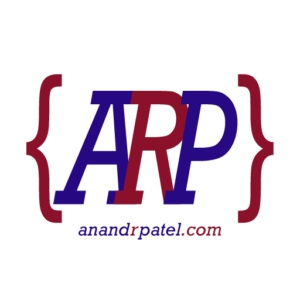
Image Source: Pexels
Introduction to Azure DevOps
In today’s fast-paced and highly regulated software development landscape, ensuring compliance has become a top priority for organizations. Compliance refers to adhering to industry standards, regulations, and best practices to maintain data security, privacy, and integrity. Azure DevOps, a cloud-based service by Microsoft, offers a comprehensive suite of tools and services that can streamline compliance processes and improve overall efficiency.
The Importance of Compliance in Software Development
Compliance plays a crucial role in software development, particularly in industries such as healthcare, finance, and government, where data privacy and security are paramount. Failure to comply with regulations can result in severe consequences, including financial penalties, damaged reputation, and legal ramifications. By ensuring compliance, organizations not only mitigate risks but also build trust with their customers and stakeholders.
Challenges in Ensuring Compliance
Ensuring compliance in software development is no easy task. Organizations often face a multitude of challenges, such as keeping up with ever-changing regulations, managing complex workflows, and maintaining documentation. Additionally, the lack of visibility and collaboration between teams can hinder compliance efforts. These challenges can lead to errors, delays, and increased costs.
How Azure DevOps Can Help with Compliance
Azure DevOps offers a range of features and capabilities that can greatly simplify compliance processes. With its integrated tools, organizations can automate workflows, improve visibility, and enhance collaboration among teams. Azure DevOps provides a centralized platform for managing source code, running tests, and deploying applications, ensuring compliance throughout the development lifecycle.
Key Features of Azure DevOps for Compliance
Azure DevOps encompasses several key features that make it an ideal choice for ensuring compliance. These include:
1. Azure Boards
Azure Boards provide a flexible and customizable platform for managing work items, tracking progress, and capturing feedback. By utilizing boards, organizations can effectively document and track compliance-related tasks, ensuring nothing falls through the cracks.
2. Azure Repos
Azure Repos is a version control system that enables teams to securely manage and track changes to source code. By maintaining a comprehensive history of code modifications, organizations can demonstrate compliance and easily identify any unauthorized changes.
3. Azure Pipelines
Azure Pipelines offers a powerful and scalable solution for automating build, test, and deployment processes. By automating these processes, organizations can ensure that compliance practices are consistently applied, reducing the risk of human error.
4. Azure Artifacts
Azure Artifacts is a package management system that allows teams to store and share artifacts such as binaries, libraries, and other dependencies. By centralizing artifact management, organizations can ensure that only approved and compliant components are used in their applications.
5. Azure Test Plans
Azure Test Plans provide a comprehensive testing solution that enables organizations to plan, track, and report on testing activities. By conducting thorough tests, organizations can identify and address any compliance issues before the application is deployed.
Steps to Set Up Compliance Workflows in Azure DevOps
Setting up compliance workflows in Azure DevOps involves several key steps:
1. Define Compliance Requirements
The first step is to identify and understand the compliance requirements specific to your organization. This may involve researching industry regulations, consulting with legal and compliance experts, and conducting internal audits. Once the requirements are defined, they can be translated into actionable tasks within Azure Boards.
2. Configure Azure Repos
Next, configure Azure Repos to ensure proper version control and auditing of source code. This includes setting up branch policies, access controls, and code review processes. By implementing these measures, organizations can enforce compliance and prevent unauthorized changes to the codebase.
3. Automate Build and Test Processes
Leverage Azure Pipelines to automate build, test, and deployment processes. This involves creating pipelines that integrate with Azure Repos and Azure Test Plans. By automating these processes, organizations can ensure that compliance practices are consistently applied and reduce the risk of human error.
4. Implement Artifact Management
Utilize Azure Artifacts to manage and distribute compliant artifacts. This includes setting up artifact feeds, establishing approval workflows, and ensuring that only approved artifacts are used in the application. By implementing artifact management, organizations can mitigate the risk of using non-compliant or vulnerable components.
5. Monitor and Report on Compliance
Implement monitoring and reporting mechanisms to track compliance throughout the development lifecycle. This may involve setting up alerts, generating compliance reports, and conducting periodic audits. By continuously monitoring compliance, organizations can identify and address any issues in a timely manner.
Best Practices for Compliance in Azure DevOps
While Azure DevOps provides a robust framework for ensuring compliance, it is essential to follow best practices to maximize its effectiveness. Some best practices include:
- Regular Training and Education: Provide training and educational resources to ensure that teams are aware of compliance requirements and best practices.
- Continuous Integration and Deployment: Implement continuous integration and deployment practices to automate compliance checks and ensure that only compliant code is deployed.
- Role-Based Access Control: Define and enforce role-based access controls to limit access to sensitive data and ensure that only authorized personnel can make changes.
- Documentation and Auditing: Maintain thorough documentation of compliance processes, including version control history, audit logs, and test results.
- Collaboration and Communication: Encourage collaboration and communication between development, operations, and compliance teams to ensure alignment and shared understanding of compliance requirements.
Case Studies: Real-World Examples of Successful Compliance Implementation with Azure DevOps
Case Study 1: Healthcare Compliance
A large healthcare organization successfully implemented compliance workflows in Azure DevOps to meet stringent data privacy regulations. By utilizing Azure Boards to track compliance tasks, Azure Repos for version control, Azure Pipelines for automated testing and deployment, and Azure Artifacts for artifact management, the organization streamlined compliance processes, reduced errors, and improved overall efficiency.
Case Study 2: Financial Services Compliance
A financial services company leveraged Azure DevOps to ensure compliance with industry regulations and security standards. By implementing role-based access controls, automated build and deployment processes, and comprehensive monitoring and reporting mechanisms, the organization achieved a high level of compliance, mitigated risks, and gained the trust of its customers.
Training and Resources for Azure DevOps Compliance
Microsoft offers a wide range of training and resources to help organizations leverage Azure DevOps for compliance. These include online courses, documentation, tutorials, and certifications. Organizations can also engage with Microsoft’s support teams and community forums to seek guidance and best practices specific to their compliance needs.
Conclusion: Leveraging Azure DevOps for Seamless Compliance
Compliance in software development is crucial for maintaining data security, privacy, and integrity. Azure DevOps provides a powerful set of tools and services that can simplify compliance processes and improve overall efficiency. By leveraging Azure Boards, Azure Repos, Azure Pipelines, Azure Artifacts, and Azure Test Plans, organizations can automate workflows, improve visibility, and enhance collaboration, ensuring compliance throughout the development lifecycle. By following best practices, learning from real-world case studies, and leveraging training and resources provided by Microsoft, organizations can unleash the power of Azure DevOps to achieve seamless compliance.
